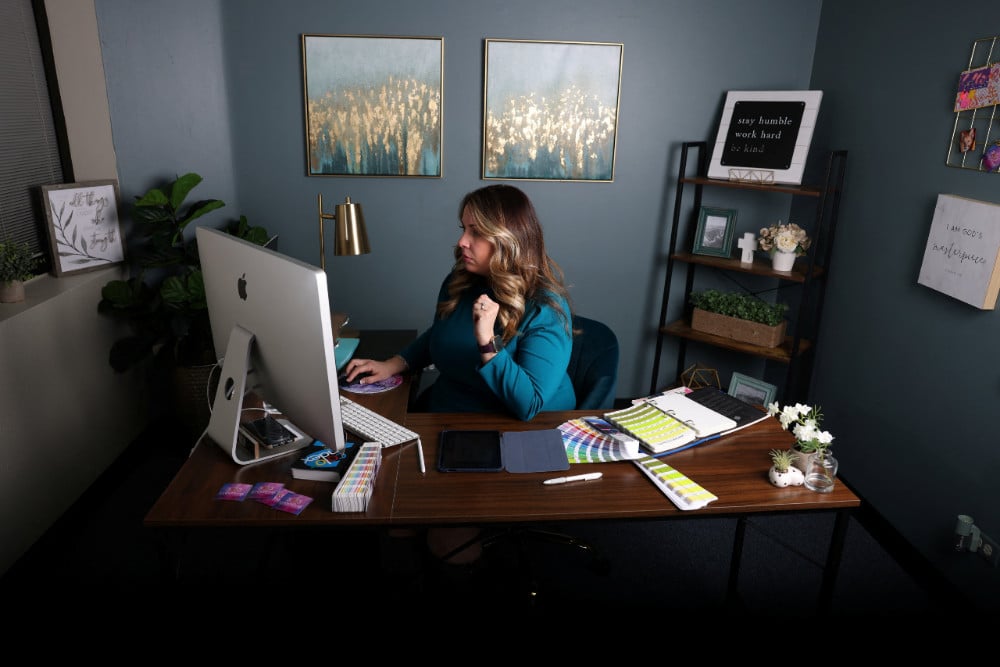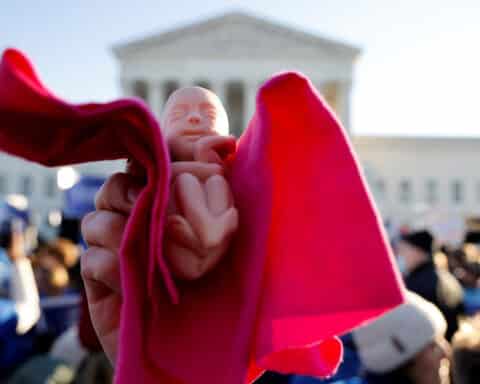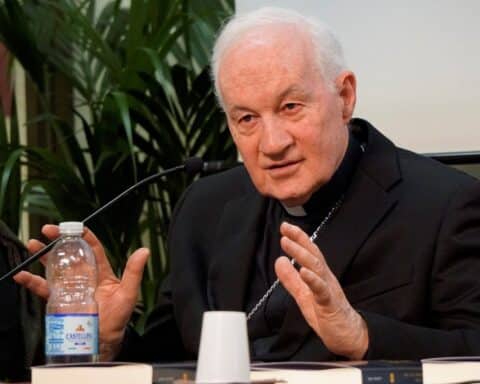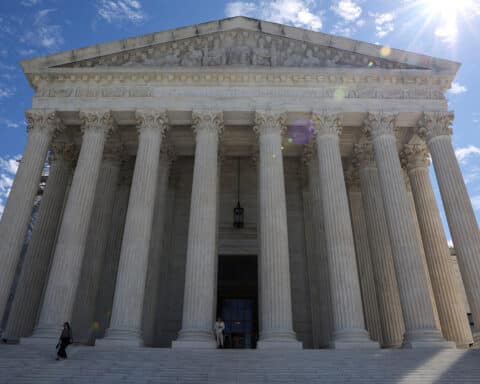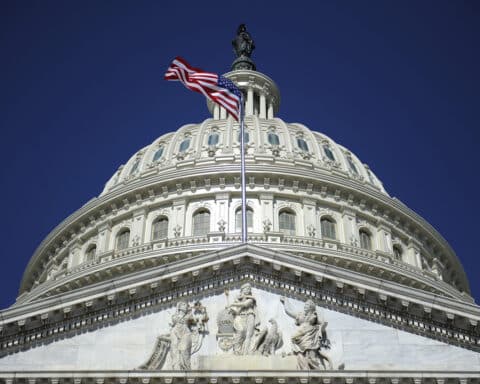On Monday, the U.S. Supreme Court heard oral argument on yet another case testing the scope and meaning of the First Amendment. The case, 303 Creative v. Elenis, will answer the question whether Colorado can compel a website designer to create websites expressing or endorsing moral opinions that are contrary to her own conscience, even it means denying a very limited scope of services to some Colorado citizens.
A Colorado law provides that shops, restaurants, event halls and other “public accommodations” may not discriminate in providing services to people based upon, among other things, a person’s sexual attraction. Lorie Smith, owner of 303 Creative has not, does not, and does not believe that one should discriminate against people with same-sex attraction. She has happily served, and will continue to serve, persons with same-sex attraction for any number of kinds of websites. Smith believes, however, that two people of the same sex cannot be married. Thus, she refuses to create wedding websites for same-sex “weddings,” as this would constitute creating something that she believes is false.
Rather than wait to be sued by someone under the Colorado law, Smith herself filed a lawsuit against the state of Colorado, contending that the law violates both her First Amendment rights of religious liberty and free speech. She contends that the statute compels her to say things that constitute an infringement of her religious freedom, under threat of stiff penalties if she refuses. (As a reminder, the First Amendment provides in relevant part that “Congress shall make no law respecting an establishment of religion, or prohibiting the free exercise thereof; or abridging freedom of speech.”) The court, as is its privilege, accepted only the free speech challenge, specifically addressing the question: “Whether applying a public-accommodation law to compel an artist to speak or stay silent violates the free speech or free exercise clauses of the First Amendment.” While I would have preferred that the court consider the free exercise challenge as well, for Lorie Smith’s purposes, the Court’s decision will have almost the identical effect.
The facts of 303 Creative are somewhat like the case of Masterpiece Cakeshop v. Colorado Civil Rights Commission, from the Court’s 2017 term. In Masterpiece Cakeshop, wedding cake artist Jack Phillips was sued by a same-sex couple for Phillips’ refusal to create a cake for the couple’s “wedding,” on the same grounds that Lorie Smith will not create such a website. Phillips won his case at the Supreme Court, but on such narrow and specific grounds that it has little precedential value for Smith’s case. Based upon some bigoted comments from a member of the Colorado Civil Rights Commission against Phillips (and religious believers more generally), the court ruled that the commission showed prejudicial animus against him. Thus, the commission’s verdict against Phillips for violating the Colorado statute was overturned. While this narrow decision was a good outcome in the short term for Phillips, the Supreme Court did not determine whether the Colorado law under review violated Phillips’ speech or religious exercise rights. In 303 Creative, the court could make that determination for Smith in such a way that it will inure to Phillips’ benefit as well.
On its face, one might be tempted to say, “Well, of course the government cannot compel speech.” But state and federal governments compel speech in all sorts of ways that few (if anyone) find objectionable. Warning labels on food, drugs, medical devices, household appliance, yard tools and automobiles, to cite a handful of examples, are all instances of governments compelling speech. But the court has long made a distinction between different kinds of speech for the sake of deciding what can and cannot be compelled, consistent with First Amendment principles and the public good. So, for example, commercial speech has less protection and a lower standard of review than artistic, religious or political speech. This is where 303 Creative comes in.
Smith’s contention is that her websites are artistic speech, and that the Colorado law compels her to create speech that violates her religious rights. It’s not about selling a product or service, she contends, but saying things through artistic talent that violate her conscience. She contends that the law could compel a Democrat to write campaign literature for a Republican candidate; or a Jewish artist to create a website expressing Nazi propaganda. Put simply, the law would compel a person to say things that the person believes are false — in this case, that two women or two men can be married.
In the Dec. 5 oral argument, the court was (not surprisingly) sharply divided in its questioning of the litigants’ attorneys. Justices Sonia Sotomayor and Ketanji Brown Jackson wanted to focus on the service provided rather than the message conveyed. Similarly, Colorado’s attorney kept trying to make the case about serving same-sex attracted persons rather than creating art conveying a message about the moral legitimacy of same-sex marriage. A majority of the court did not seem sympathetic to Colorado’s subterfuge.
The issue here, as the questions by Justices Amy Coney Barrett, Samuel Alito and Neil Gorsuch implied, is compelled speech, not service. It’s about messages, not persons. Smith does not refuse to serve same-sex attracted persons. Indeed, she has many LGBTQ clients. Rather, she refuses to create a message endorsing same-sex “marriage” because she believes such marriages cannot exist — thus, that the message would be a statement of falsehood. The message is in the product, Smith’s attorney argued, and, therefore, she should not be compelled to create the product. As Gorsuch summarized the point, “The question isn’t who, it’s what.” Even Justice Elena Kagan was sympathetic to the point, although it was not clear that she will be convinced by it to vote in favor of Lorie Smith.
Twenty states filed amicus briefs in support of Smith, indicating that their public accommodations laws have successfully provided conscience protections for creative and artistic companies like 303 Creative, such that they are not compelled to create speech that endorses moral, religious, or political positions to which they object. Based on the oral argument, it seems likely that a majority of Supreme Court justices will find in favor of 303 Creative and instruct Colorado to amend its law to do the same, so that the First Amendment free speech rights of people like Lorie Smith (and Jack Phillips) are protected.
Kenneth Craycraft is the James J. Gardner Family Chair in Moral Theology at Mount St. Mary’s Seminary and School of Theology in Cincinnati. Follow Twitter @krcraycraft and Instagram @ken.craycraft.

